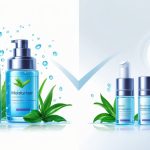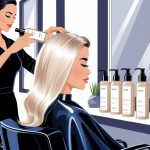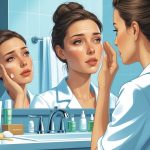Facial Serum Claims Now Under Scrutiny as Dermatologists Warn Busy Shoppers
What to Watch for in Future Facial Serum Innovations
Staring at serum shelves is like reading a sci-fi novel—every label promises “glass skin” by next week. Dermatologists keep warning about ingredient overload, but brands toss out “antioxidants” and “demi-god formula” like confetti. Trends and science barely overlap.
Emerging Research and Trends
Formulas keep changing—sometimes it’s good, sometimes it’s just marketing. Vitamin C serums used to be the thing (“ascorbic acid denatured by noon,” as my old boss grumbled). Now it’s all about stabilized mixes: ferulic acid, vitamin E, niacinamide at every percentage under the sun. JAMA Dermatology (2024) said vitamin C helped pigmentation for 71% of people—but irritation skyrockets past 15%. Instagram never mentions that.
Retinol launches exploded last year, but only the encapsulated ones didn’t torch my face. Vitamin B5, tranexamic acid—they’re supposed to fight dullness, but the studies are tiny and, honestly, who knows? Blue light serums? Might as well be sunscreen with a fancier label.
Consumer Demand for Greater Transparency
Everyone wants “no fluff, just facts” now. Emotional beauty, “eco-cert” packaging, batch tracking—shoppers are obsessed. I know an esthetician who gets DMs about parabens every week because TikTok said so.
Good luck verifying any of it. INCI decoder apps aren’t psychic. Brands say “dermatologist-tested,” but half the time it’s just a survey of their own interns. If you want real info, look for actual trial numbers, not “93% saw results” from a mystery sample. Or just grab the bottle that doesn’t look like a cartoon—whatever works.
Frequently Asked Questions
Between tiny fine print and wild claims, picking a serum feels like gambling. Even dermatologists sound unsure sometimes. I’m just trying not to buy another bottle of expensive hope.
What should I look for in a facial serum to ensure it’s safe and effective?
Ingredient lists are a nightmare. I almost quit at “phenoxyethanol” every time. My dermatologist says “dermatologist-tested” means nothing; apparently, it’s just a glance, not a guarantee.
Brand? Doesn’t matter. I check for niacinamide (5%), stabilized vitamin C (over 8%), retinol (under 1%), and if there’s no study or reference, I move on. “Toxin-free” is just a buzzword. Preservatives aren’t evil—potassium sorbate isn’t out to get you. Why do some brands use “chemical-free” in Comic Sans? FDA doesn’t really check, so I look stuff up on EWG or PubMed if I’m bored enough.
Can dermatologists recommend alternatives to popular serums that are currently under scrutiny?
My derm? She barely hesitated—plain hyaluronic acid serum (no perfume), SPF 30 moisturizer, prescription tretinoin if you’re serious. None of that gets hyped online, but her words: “Most store serums are watered-down versions of the real stuff, save your money.”
She won’t touch those viral miracle serums. Remember the Glo Vous Derm Luxe mess with the fake “Shark Tank” ads? She almost lost it. If in doubt, I just bring the bottle to her office. The ingredient list tells the real story, not the front sticker.
How can I interpret before and after pictures of serum use to make an informed decision?
Those “before and after” pics? Usually just better lighting and a good skin day. Dr. Jessica Wu says most results are temporary—hydration plumps skin for a few hours, enough for a photo.
Zoom in. If pores or wrinkles vanish, it’s probably Photoshop or a heavy filter. No real journal uses those photos as proof. After falling for too many Instagram side-by-sides, now I only trust clinical data. Or, honestly, I just lower my expectations.
What are the potential risks involved with using over-hyped facial serums?
Okay, so my friend grabs this “miracle” peptide serum (because, you know, 20% off, who can resist?) and—no joke—ends up in urgent care. Her face looked like someone tried to draw a topographical map of France with hives. I mean, I guess someone should’ve read the reviews buried on page six of some forum, but who seriously does that before clicking ‘buy now’? Allergic contact dermatitis, random breakouts, and—my personal favorite—getting greasier after using something labeled “mattifying.” Love that for us.
I stumbled onto some WebMD article (don’t even get me started on how reliable that is) rambling about how slapping retinol and vitamin C on your face at the same time is basically asking for trouble. Even “tough” skin apparently throws in the towel. And nobody’s really policing these formulas, so sometimes you don’t even know what’s gone wrong until months later. Oh, and I’m still bitter about that $40 bottle that torched my summer selfies. Was it worth it? Nope.
Are there any clinically proven benefits to using serums like Olay Super Serum?
Look, the ads scream “miracle in a bottle,” but Olay Super Serum? Honestly, it’s got some data—hydration goes up, maybe a few fine lines fade, but I’m not waking up with a new face. Give me boring numbers, please. “17% improvement in skin texture over 8 weeks”—I’ll take that over “You’ll look like you time-traveled!” any day.
I usually end up doomscrolling through PubMed or whatever, trying to find actual studies. Sometimes brands toss around their own “whitepapers,” which, let’s be real, feel like fancy ads. If there’s no outside dermatologist or, I dunno, a double-blinded trial, I just assume it’s marketing fluff. Or am I being too cynical? Probably. But until I see a real study, it’s all just another before-and-after pic to me.
What steps can I take to protect my skin if I’m worried about the ingredients in my current serum?
So, last week my face was just… weirdly itchy and flaking off like I’d tried to exfoliate with sandpaper. I panicked, ditched every serum I’d been experimenting with, and just slathered on the most boring, scentless moisturizer I could find. Magically, that helped. (Honestly, why do I even bother with “miracle” serums? Half the time they just make things worse.) Sometimes I patch-test stuff on my elbow, which feels ridiculous—like, who decided elbows were the universal test site? But apparently my dermatologist does it too, so maybe it’s not just me being neurotic. She called it her “skincare panic button,” which is both reassuring and slightly hilarious.
I’m all about products with ingredient lists you can actually pronounce. If something says “fragrance” without specifics, or it’s loaded with a suspicious amount of acids promising overnight miracles, nope, not worth the risk. I still check the FDA’s cosmetic recall page sometimes (honestly, their website is a pain, but it’s there if you want to spiral into anxiety for an hour). Mostly I just stick to the basics and slap on SPF 30 every morning, even if I know I’ll forget to reapply after lunch. Does anyone actually reapply sunscreen every two hours? If so, teach me your ways, because I’m not that person.



